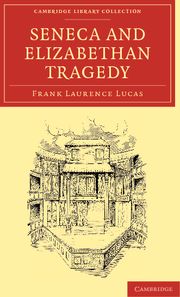CHAP. IV - DARKNESS AND DAWN
Published online by Cambridge University Press: 07 September 2010
Summary
“The flower of all writers.”
Heywood of Seneca.“Inferior in majesty to none of the Greeks, in culture and polish even greater than Euripides.”
Scaliger.With Seneca, Classic Tragedy gutters out; Rome's greatest historian, her greatest satirist were still to come; but the twilight has already darkened across her stage. Yet it was only drama, not histrionics, that died; all through the dusty decadence of the Western Empire the passion for pantomimes and ballet-dancers, however cursed by the church and scorned by the barbarians, ineradicably persists. Rome might be threatened with famine and all foreigners, even “professors of the liberal arts” expelled—three thousand ballet-girls were retained; the Vandal might thunder at the gates of Carthage—with the groans of the dying mingled the delirious applause of her theatre. Equally vain were for long the fulminations of the Fathers of the Church. A husband might be allowed to divorce his wife for an unpermitted visit to the theatre; a devil who had entered a woman might refuse to be exorcised on the ground that she had been trespassing on his own demesne; that lewd-minded fiend Tertullian might gloat over the prospect of a tragedian screaming with real anguish, the comedian skipping with real nimbleness in the everlasting fires of the Last Day. It was a mockery of Christ, he cried, to add a cubit to a man's stature with a tragic buskin, it was defacing God's image to paint man's face, and it was contravening Deuteronomy xxii, 5 to wear women's clothes—a fatuity destined to be monotonously echoed by sixteenth-century Puritanism; for indeed, the puritanically poor in spirit have never been notably blessed in invention.
- Type
- Chapter
- Information
- Seneca and Elizabethan Tragedy , pp. 78 - 109Publisher: Cambridge University PressPrint publication year: 2009First published in: 1922



